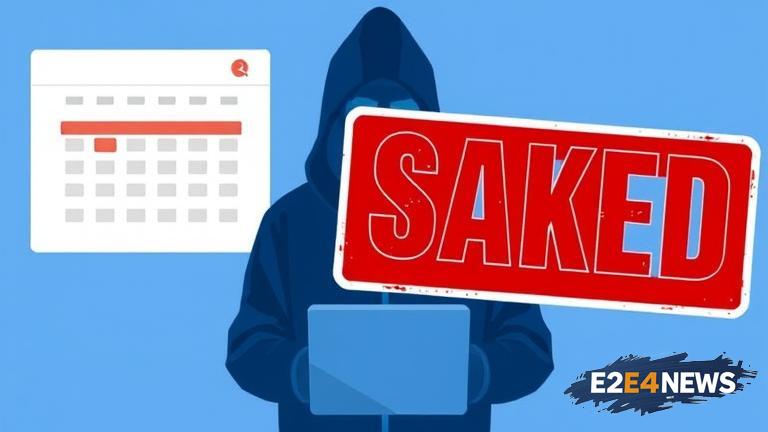A recent surge in fake Google Calendar invites has been reported, with scammers using the popular calendar service to trick users into divulging sensitive information or installing malware. The scam typically involves receiving a fake invite from an unknown sender, which may appear to be from a legitimate source such as a bank or government agency. The invite may claim that the user has won a prize or needs to update their account information, and may include a link or attachment that, when clicked, installs malware or redirects the user to a phishing site. The scam has been reported in various parts of the world, including Canada, where it has been targeting residents of Mississauga. The fake invites are often designed to look legitimate, with scammers using spoofed email addresses and logos to make the invite appear genuine. However, there are several red flags that users can look out for to avoid falling victim to the scam. For example, the invite may be from an unknown sender, or may contain spelling or grammar mistakes. Additionally, legitimate Google Calendar invites will never ask users to provide sensitive information or install software. Users who receive a suspicious invite should delete it immediately and report it to Google. The company has also taken steps to prevent the scam, including implementing new security measures to detect and block fake invites. Despite these efforts, the scam continues to be a problem, with many users reporting that they have fallen victim to it. The scam is just one example of the many types of cyber threats that users face, and highlights the need for vigilance and caution when using online services. Users should always be wary of unsolicited emails or invites, and should never provide sensitive information or install software without verifying the authenticity of the request. The fake Google Calendar invite scam is a reminder that cyber threats can come in many forms, and that users must be proactive in protecting themselves. By being aware of the scam and taking steps to avoid it, users can help to prevent the spread of malware and protect their personal information. The scam has also raised concerns about the security of online calendar services, and the need for companies to do more to protect their users. Google has said that it is working to improve the security of its calendar service, but users must also take responsibility for protecting themselves. This includes being cautious when receiving unsolicited invites, and reporting any suspicious activity to the company. The fake Google Calendar invite scam is a serious threat, and users must be vigilant in order to avoid falling victim to it. By working together, users and companies can help to prevent the spread of cyber threats and protect personal information. The scam is a reminder that cyber security is an ongoing issue, and that users must always be on the lookout for new and emerging threats. As the use of online calendar services continues to grow, it is likely that scammers will continue to target users with fake invites and other types of cyber threats. Therefore, it is essential that users are aware of the risks and take steps to protect themselves. This includes using strong passwords, keeping software up to date, and being cautious when receiving unsolicited emails or invites. By taking these steps, users can help to prevent the spread of malware and protect their personal information. The fake Google Calendar invite scam is a wake-up call for users to be more vigilant when using online services, and to take steps to protect themselves from cyber threats. It is also a reminder that companies must do more to protect their users, and to implement robust security measures to prevent the spread of malware and other types of cyber threats.
